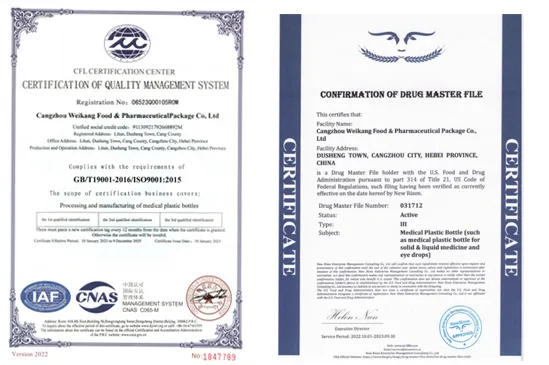
-
 Afrikaans
Afrikaans -
 Albanian
Albanian -
 Amharic
Amharic -
 Arabic
Arabic -
 Armenian
Armenian -
 Azerbaijani
Azerbaijani -
 Basque
Basque -
 Belarusian
Belarusian -
 Bengali
Bengali -
 Bosnian
Bosnian -
 Bulgarian
Bulgarian -
 Catalan
Catalan -
 Cebuano
Cebuano -
 Corsican
Corsican -
 Croatian
Croatian -
 Czech
Czech -
 Danish
Danish -
 Dutch
Dutch -
 English
English -
 Esperanto
Esperanto -
 Estonian
Estonian -
 Finnish
Finnish -
 French
French -
 Frisian
Frisian -
 Galician
Galician -
 Georgian
Georgian -
 German
German -
 Greek
Greek -
 Gujarati
Gujarati -
 Haitian Creole
Haitian Creole -
 hausa
hausa -
 hawaiian
hawaiian -
 Hebrew
Hebrew -
 Hindi
Hindi -
 Miao
Miao -
 Hungarian
Hungarian -
 Icelandic
Icelandic -
 igbo
igbo -
 Indonesian
Indonesian -
 irish
irish -
 Italian
Italian -
 Japanese
Japanese -
 Javanese
Javanese -
 Kannada
Kannada -
 kazakh
kazakh -
 Khmer
Khmer -
 Rwandese
Rwandese -
 Korean
Korean -
 Kurdish
Kurdish -
 Kyrgyz
Kyrgyz -
 Lao
Lao -
 Latin
Latin -
 Latvian
Latvian -
 Lithuanian
Lithuanian -
 Luxembourgish
Luxembourgish -
 Macedonian
Macedonian -
 Malgashi
Malgashi -
 Malay
Malay -
 Malayalam
Malayalam -
 Maltese
Maltese -
 Maori
Maori -
 Marathi
Marathi -
 Mongolian
Mongolian -
 Myanmar
Myanmar -
 Nepali
Nepali -
 Norwegian
Norwegian -
 Norwegian
Norwegian -
 Occitan
Occitan -
 Pashto
Pashto -
 Persian
Persian -
 Polish
Polish -
 Portuguese
Portuguese -
 Punjabi
Punjabi -
 Romanian
Romanian -
 Russian
Russian -
 Samoan
Samoan -
 Scottish Gaelic
Scottish Gaelic -
 Serbian
Serbian -
 Sesotho
Sesotho -
 Shona
Shona -
 Sindhi
Sindhi -
 Sinhala
Sinhala -
 Slovak
Slovak -
 Slovenian
Slovenian -
 Somali
Somali -
 Spanish
Spanish -
 Sundanese
Sundanese -
 Swahili
Swahili -
 Swedish
Swedish -
 Tagalog
Tagalog -
 Tajik
Tajik -
 Tamil
Tamil -
 Tatar
Tatar -
 Telugu
Telugu -
 Thai
Thai -
 Turkish
Turkish -
 Turkmen
Turkmen -
 Ukrainian
Ukrainian -
 Urdu
Urdu -
 Uighur
Uighur -
 Uzbek
Uzbek -
 Vietnamese
Vietnamese -
 Welsh
Welsh -
 Bantu
Bantu -
 Yiddish
Yiddish -
 Yoruba
Yoruba -
 Zulu
Zulu
Exploring the Benefits and Uses of Bulk Prescription Bottles for Pharmacists and Patients
The Role and Importance of Bulk Prescription Bottles in Modern Pharmacy
In the evolving landscape of modern pharmacy, efficiency and safety are paramount. One significant aspect contributing to these goals is the use of bulk prescription bottles. These bottles play a crucial role in the dispensing process, ensuring that pharmacies can effectively manage medications while providing a safer experience for patients.
Bulk prescription bottles are designed to store and facilitate the distribution of medications in larger quantities. They are typically used for high-demand medications that are frequently prescribed, such as antibiotics, analgesics, and chronic disease management drugs. By purchasing medications in bulk, pharmacies can reduce costs, minimize packaging waste, and improve inventory management. This approach not only benefits the pharmacy but also contributes to overall healthcare savings.
One of the primary advantages of bulk prescription bottles is the efficiency they bring to medication dispensing. Traditionally, pharmacies would need to fill individual prescriptions one bottle at a time, a labor-intensive process that could lead to delays and increased chances of error. With bulk bottles, pharmacists can quickly and accurately dispense the required medication into smaller, patient-specific containers. This streamlined process enhances the speed of service, particularly during peak hours, thus improving patient satisfaction.
Moreover, bulk prescription bottles help ensure a more consistent supply of medications. By stocking larger quantities, pharmacies can better withstand fluctuations in demand caused by seasonal illnesses or public health emergencies. This is particularly vital in times of crisis, such as during the COVID-19 pandemic, where rapid access to medications could significantly impact patient outcomes. The ability to swiftly respond to increased demand can not only ease patient concerns but also help maintain the stability of the healthcare system.
bulk prescription bottles

Quality control is another essential consideration when it comes to bulk bottle usage. Pharmacies are required to adhere to strict regulations concerning medication storage and handling. Bulk prescription bottles are designed to meet these standards, with features such as child-proof lids, tamper-evident seals, and materials that prevent contamination. By utilizing these specialized containers, pharmacies can safeguard the integrity of the medications and ensure they reach patients in optimal condition.
Additionally, bulk prescription bottles can improve medication adherence among patients. When prescribed multiple medications, patients are often overwhelmed by the number of individual containers they need to manage. Using larger, consolidated bottles can simplify the process, allowing patients to easily understand their regimen. Clear labeling and detailed instructions can be provided on the bulk bottles, further enhancing patient education and compliance.
Another critical aspect to consider is the environmental impact. The pharmaceutical industry is increasingly focusing on sustainability, and bulk prescription bottles can significantly reduce excess packaging. Fewer individual containers not only lessen waste but also decrease the overall carbon footprint associated with manufacturing and disposal. This aligns with the growing consumer demand for environmentally friendly practices in healthcare.
In conclusion, bulk prescription bottles are an integral component of modern pharmacy operations. They enhance efficiency, improve inventory management, ensure patient safety, and promote medication adherence while also contributing to sustainability efforts. As healthcare continues to advance, the role of bulk prescription bottles will likely evolve, but their importance in optimizing pharmacy practices cannot be overstated. By embracing these innovative solutions, pharmacies can better serve their patients and contribute to a more effective healthcare system.
-
PTFE Centrifuge Tubes - Chemical Resistant, Leak-proof, Ideal for Laboratory UseNewsJul.05,2025
-
Premium Metal Dropper Bottle for Precise Dispensing 250ml & 1ml Options AvailableNewsJul.04,2025
-
20 ml Headspace Vials - High Quality Polyethylene & Plastic Vials for Lab UseNewsJul.04,2025
-
Small Bottle with Pipette - Precise Dispensing 100ml Pipette Bottles for Essential Oils & Lab UseNewsJun.24,2025
-
Acetic Anhydride Bottle for Accurate Dropper Measurement in Pharmacy Use High-Quality Dropper BottlesNewsJun.10,2025
-
Innovative PET Bottle Design for Juice – Unique Shapes & Customization OptionsNewsJun.10,2025






















